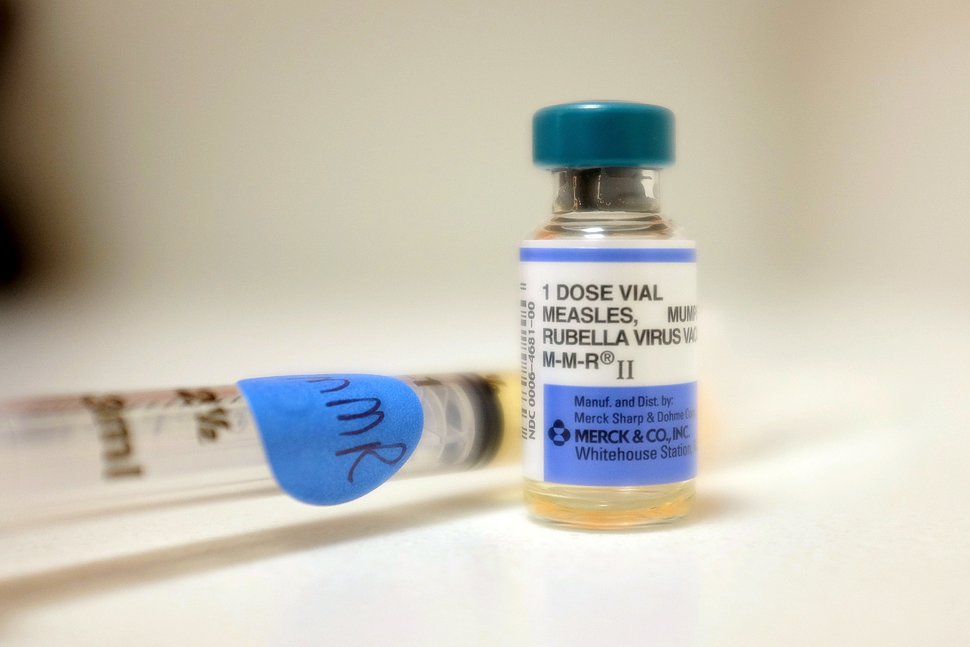Members of Congress will hold a hearing on the spread of measles, while lawmakers in Washington state hope to tighten vaccination requirements.
STATE AND FEDERAL lawmakers are examining efforts to curb the spread of measles amid an outbreak in the Pacific Northwest that has been concentrated mostly among unvaccinated children.
In the span of just a month and a half this year, 10 states have seen 127 confirmed cases of measles, which was declared eliminated from the U.S. nearly two decades ago. Yet notable spikes have occurred in recent years, with 372 cases in 2017 and 667 cases in 2014, according to the
In 2019, many cases have occurred in Clark County, Washington, an area north of Portland, Oregon, where local health officials had confirmed 62 measles cases as of Tuesday morning and have identified locations where people may have been exposed to the virus. Measles is so contagious that nearly everyone who comes into contact with it and isn’t immune will become infected.
As of April, only about 77 percent of Clark Countykindergarteners had completed their vaccinations for the 2017-2018 school year, among the lowest rates in Washington, state data show.
“We have a lot of people that I believe are misinformed,” state Rep. Paul Harris told NPR last week. “In our society, we’re so fortunate that these diseases – because the vast majority of us are vaccinated – these things have gone out of our lives, so we don’t really know what they’re like. But let me tell you, we don’t want these diseases back in our life.”
Harris has sponsored a state bill that would remove the ability of parents to claim a personal or philosophical exemption from the measles, mumps and rubella vaccine for their school-age children.
A similar measure failed in 2015, but the bill passed a state House committee last week, with Harris the lone Republican on the committee to support it. All nine Democrats voted in favor, The Seattle Times reported.
Most states allow religious exemptions for school vaccination requirements, and 17 states, including Washington and Oregon, allow parents to exempt their children for personal, moral or other beliefs, according to the National Conference of State Legislatures.
In Washington, where Gov. Jay Inslee declared a state emergency over the outbreak last month, personal-belief exemptions constitute the “vast majority” of school vaccine opt-outs, Harris told NPR.
In California, a Disneyland-linked outbreak identified in early 2015 sickened about 150 people and prompted the state to tighten its vaccination laws, and Maine is now considering a similar move. West Virginia lawmakers, however, are considering legislation loosening its vaccine laws, while Arizona legislators have introduced dueling legislation on vaccine requirements.
On Capitol Hill, members of the U.S. House Oversight and Investigations Subcommittee next week will hold a hearing about “the current outbreak, efforts to prevent the disease’s spread, and strategies to support vaccination efforts,” a statement from lawmakers says.
The recent measles cases have fueled demand for vaccinations both in Clark County and other regions that have experienced an influx of late. Since October, more than 14,000 children have been vaccinated in New York, which has experienced outbreaks of its own in New York City and Monroe and Rockland counties.
As of Feb. 14, Texas officials also had confirmed eight measles cases, with additional cases reported in California, Colorado, Connecticut, Georgia, Illinois, Kentucky and Oregon, according to the CDC. The agency previously had listed New Jersey as well, though an illness there turned out not to be measles.
Most of the 10 states with measles cases reported this year allow vaccine exemptions for religious reasons, or for personal reasons.
“It’s an avoidable tragedy,” Scott Gottlieb, commissioner of the U.S. Food and Drug Administration, told Axios. “Too many states have lax laws.”




























